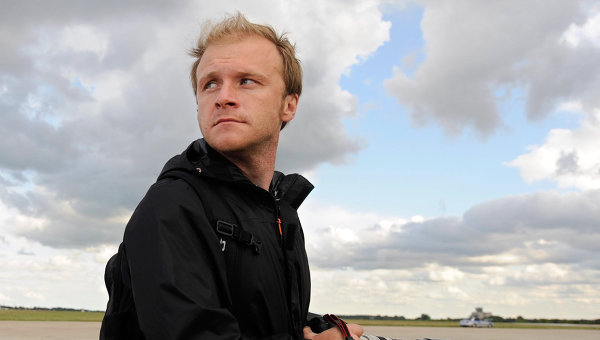MOSCOW, October 29 (RAPSI) - Russia's Investigative Committee has brought hooliganism charges against Denis Sinyakov, a prominent Russian freelance photographer who was among the Greenpeace activists detained during the now infamous raid on Gazprom's drilling platform, Greenpeace wrote on its Twitter account on Tuesday.
As previously reported, Vadim Tulpanov, member of the Federation Council, Russia's upper house of parliament, has petitioned Russian Prosecutor General Yuri Chaika to personally review the case of Sinyakov.
Tulpanov requested a determination of whether Sinyakov was acting in his official capacity as a journalist during his arrest and subsequent detainment. He added that a journalist performing his duty "must be protected."
On October 4, Presidential Human Rights Council posted on its website a statement, in which the council called the detention of Denis Sinyakov a direct violation of Russia's mass-media law, which protects the rights of journalists, including freelancers, while working in a professional capacity.
The council said Sinyakov was aboard the Arctic Sunrise icebreaker on assignment from media outlet Lenta.ru, and did not directly participate in the September 18 protest, wherein Greenpeace activists tried to scale the Prirazlomnaya oil platform in the Pechora Sea.
The Arctic Sunrise ship was seized by Russian border guards on September 19 in international waters, within Russia's exclusive economic zone, a day after two Greenpeace activists scaled the Prirazlomnaya drilling rig in the Pechora Sea, the southeastern part of the Barents Sea. Greenpeace claimed that the ship was held under armed guard.
The platform, owned by Gazprom Neft Shelf, a subsidiary of Russian energy giant Gazprom, is the first ice-resistant stationary oil platform in the world set to produce offshore Arctic oil.
Greenpeace and other environmental groups oppose drilling for oil in the Arctic because they say that it is currently impossible to sufficiently clean up potential oil spills in the region, and that such drilling cannot be economically viable without state subsidies.



